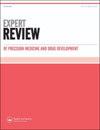预测、诊断、预防和治疗:糖尿病患者的遗传主导护理
IF 1.2
Q4 PHARMACOLOGY & PHARMACY
Expert Review of Precision Medicine and Drug Development
Pub Date : 2021-09-03
DOI:10.1080/23808993.2021.1970526
引用次数: 0
摘要
糖尿病是一种严重的代谢性疾病,具有高发病率和高死亡率,影响全球人群,尤其是亚洲人群。遗传学在疾病的发展、预防和治疗方法中起着重要作用。糖尿病的精准医学需要对遗传学和糖尿病的多种机制都有深刻的了解。本综述全面描述和讨论了基于遗传学的糖尿病预测、诊断、预防和治疗的最新进展,以及这些进展对精准医学的潜在影响,特别是对亚洲人群的潜在影响。我们分析了PubMed Central®(PMC)存档中的可用文献。先进的遗传知识可以导致精确的诊断,改进的风险预测,糖尿病预防和基于遗传学的糖尿病治疗。提高对遗传学策略的理解、可获得性和可负担性,将改善糖尿病患者和糖尿病高危人群的生活质量。本文章由计算机程序翻译,如有差异,请以英文原文为准。
Prediction, diagnosis, prevention and treatment: genetic-led care of patients with diabetes
ABSTRACT Introduction Diabetes mellitus is a serious metabolic disorder that is associated with high morbidity and mortality, and that affects people worldwide – especially in Asia. Genetics plays an important role in disease development, prevention, and therapeutic approach. Precision medicine in diabetes requires a profound understanding of both genetics and the plethora of mechanisms of diabetes. Areas covered This review comprehensively describes and discusses the recent advances in genetics-based prediction, diagnosis, prevention, and treatment of diabetes, and the potential impact of these advances on precision medicine, especially in the Asian population. We analyzed the available literature from the PubMed Central® (PMC) archive. Expert opinion Advanced genetic knowledge can lead to the precise diagnosis, improved risk prediction, diabetes prevention, and genetics-based diabetes treatment. Increased understanding, availability, and affordability of genetics-based strategies will improve the quality of life of those with and those at risk for developing diabetes.
求助全文
通过发布文献求助,成功后即可免费获取论文全文。
去求助
来源期刊

Expert Review of Precision Medicine and Drug Development
PHARMACOLOGY & PHARMACY-
CiteScore
2.30
自引率
0.00%
发文量
9
期刊介绍:
Expert Review of Precision Medicine and Drug Development publishes primarily review articles covering the development and clinical application of medicine to be used in a personalized therapy setting; in addition, the journal also publishes original research and commentary-style articles. In an era where medicine is recognizing that a one-size-fits-all approach is not always appropriate, it has become necessary to identify patients responsive to treatments and treat patient populations using a tailored approach. Areas covered include: Development and application of drugs targeted to specific genotypes and populations, as well as advanced diagnostic technologies and significant biomarkers that aid in this. Clinical trials and case studies within personalized therapy and drug development. Screening, prediction and prevention of disease, prediction of adverse events, treatment monitoring, effects of metabolomics and microbiomics on treatment. Secondary population research, genome-wide association studies, disease–gene association studies, personal genome technologies. Ethical and cost–benefit issues, the impact to healthcare and business infrastructure, and regulatory issues.
 求助内容:
求助内容: 应助结果提醒方式:
应助结果提醒方式:


